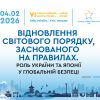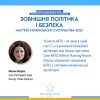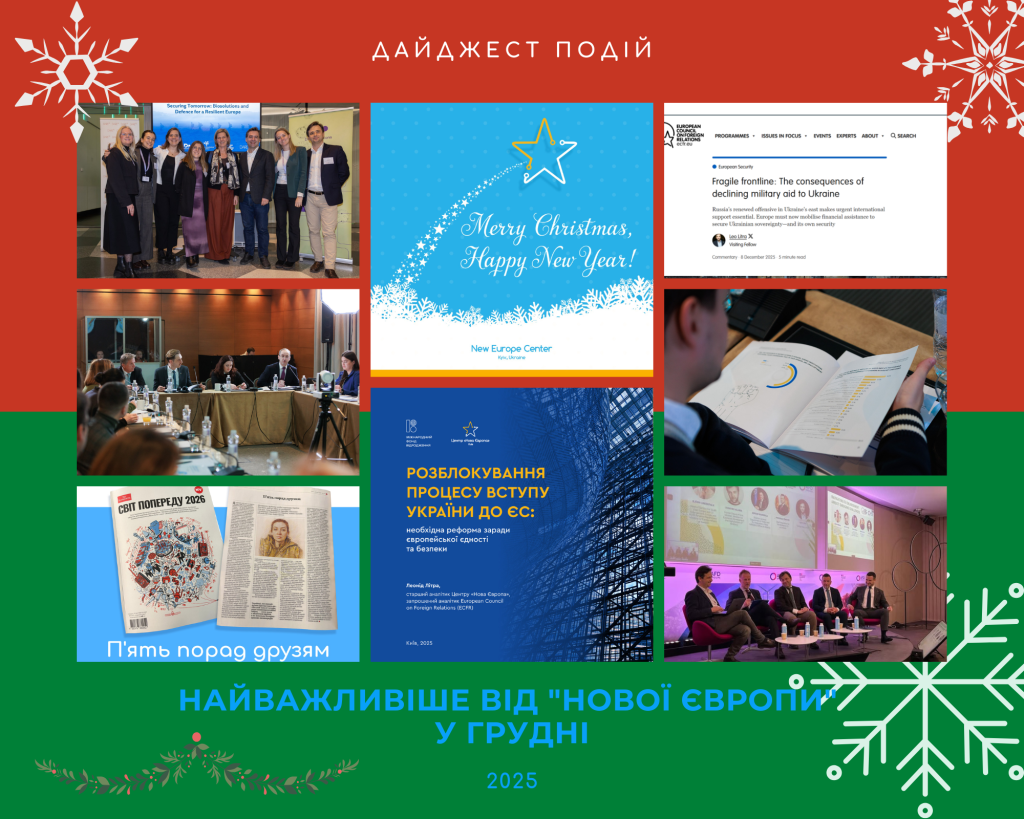During Session 2 “Resilience and Recovery: Ukraine’s Fight Beyond the Battlefield” of the IV Ukraine–France Forum, experts from both countries emphasized that Ukraine’s struggle extends far beyond the battlefield. French partners reaffirmed the readiness of their government and business community to contribute to Ukraine’s reconstruction, while Ukrainian speakers underscored that the strength of the country lies in the synergy between the state, business, and civil society.
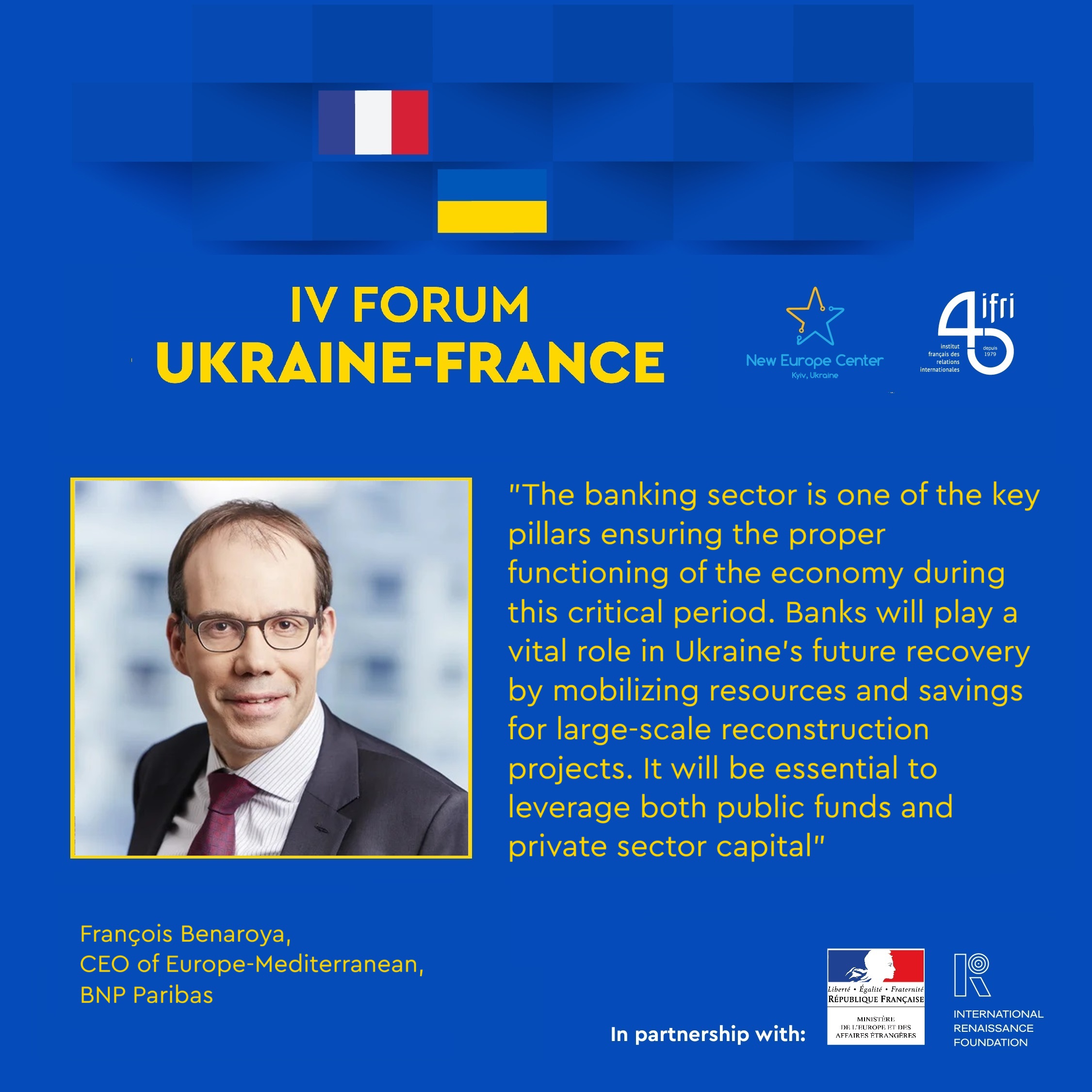
François Benaroya, CEO of Europe-Mediterranean, BNP Paribas, France:
- The French banking sector is closely monitoring developments in Ukraine and views the country as a key partner in the region;
- The banking system is a critical pillar of Ukraine’s national resilience, standing alongside energy and telecommunications as one of the “pillars of survival” for the wartime economy;
- Ukraine’s banking sector remains liquid and ready to participate in reconstruction. It holds substantial domestic resources that could be mobilized for recovery projects, provided there are sufficient state and international guarantees;
- Ukraine’s recovery requires significant private capital. The estimated needs amount to around $500 billion, with Ukrainian banks and private entities potentially contributing $50–100 billion;
- The resilience of Ukraine’s economy results from the combined efforts of the state, private sector, and citizens – a partnership that preserved financial stability during the most critical moments of the war.
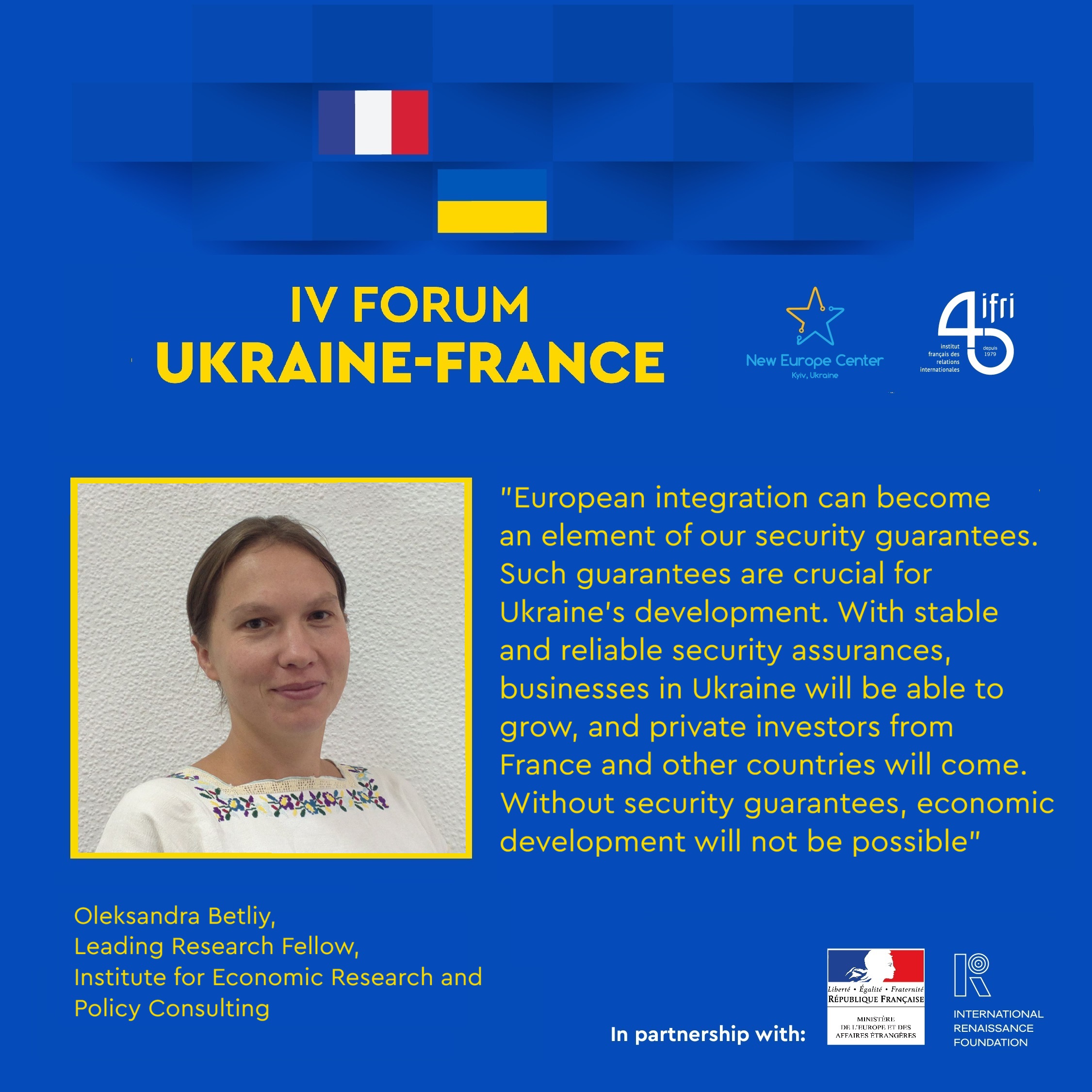
Oleksandra Betliy, Leading Research Fellow, Institute for Economic Research and Policy Consulting, Ukraine:
- International aid remains vital but insufficient. Since 2022, Ukraine has received approximately $145 billion in external support from the EU, the United States, Canada, Japan, and the United Kingdom. It’s less than France’s annual budget deficit. Most donor countries contribute less than 1% of their GDP, yet even a modest increase could significantly change the situation on the battlefield;
- The “made in Ukraine” model offers an effective approach. Denmark (“the Danish model”) demonstrates how procuring weapons manufactured in Ukraine can simultaneously support the Armed Forces, the economy, and domestic employment;
- Expanding insurance guarantees to Ukrainian companies is essential. At present, war-risk insurance is largely available only to foreign entities. Extending these mechanisms to joint productions and Ukrainian businesses would attract additional investment;
- Security is a prerequisite for development. Without reliable security guarantees, there can be no economic growth or inflow of private capital. Protecting Ukraine’s skies is the most effective investment in recovery, as future costs will only increase without it.
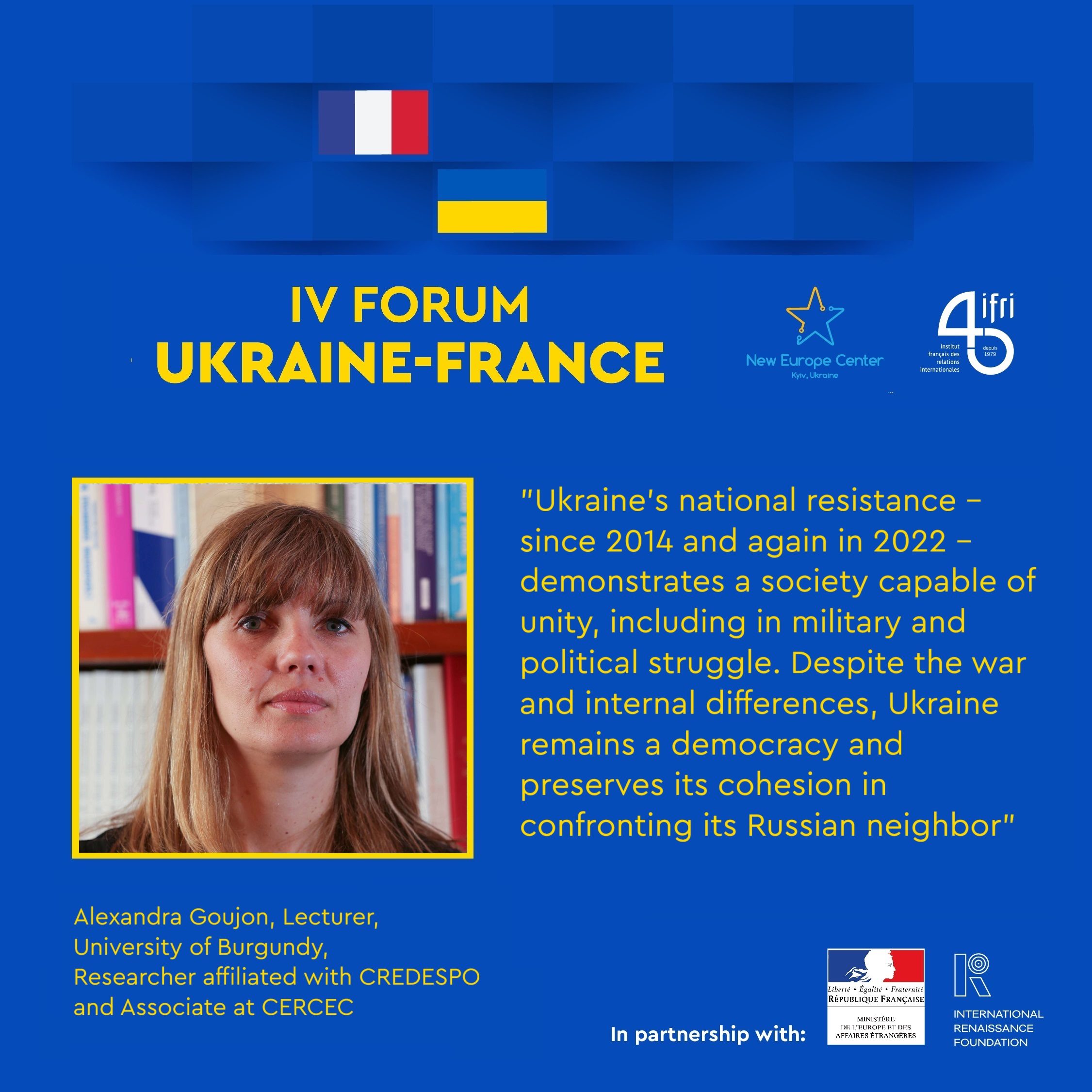
Alexandra Goujon, Lecturer, University of Burgundy, Researcher affiliated with CREDESPO and Associate at CERCEC:
- The core objective of Russia’s aggression is the destruction of Ukrainian statehood. From the outset, Russia’s attacks targeted Ukraine’s governance structures, not merely its territory. Ukraine has been defending not only its territorial integrity but also its democratic political system;
- Despite the impossibility of holding elections, political institutions continue to function, maintaining democratic balance and public trust – a testament to the flexibility of Ukraine’s democracy under wartime conditions;
- Examples of internal unity demonstrate that democracy in Ukraine remains alive and dynamic. Even amid war, society remains active and vigilant against potential abuses of power;
- At the local level, collaboration between civic initiatives, associations, and local authorities continues to strengthen horizontal connections within the country;
- Corruption remains a persistent challenge but not a systemic failure. Despite difficulties, civil society remains vigilant and capable of holding power accountable. It’s a sign of a living democracy;
- Ukrainian resilience is not only a military phenomenon but also an expression of a mature political culture – the one that combines the fight for survival with the defense of democratic principles.
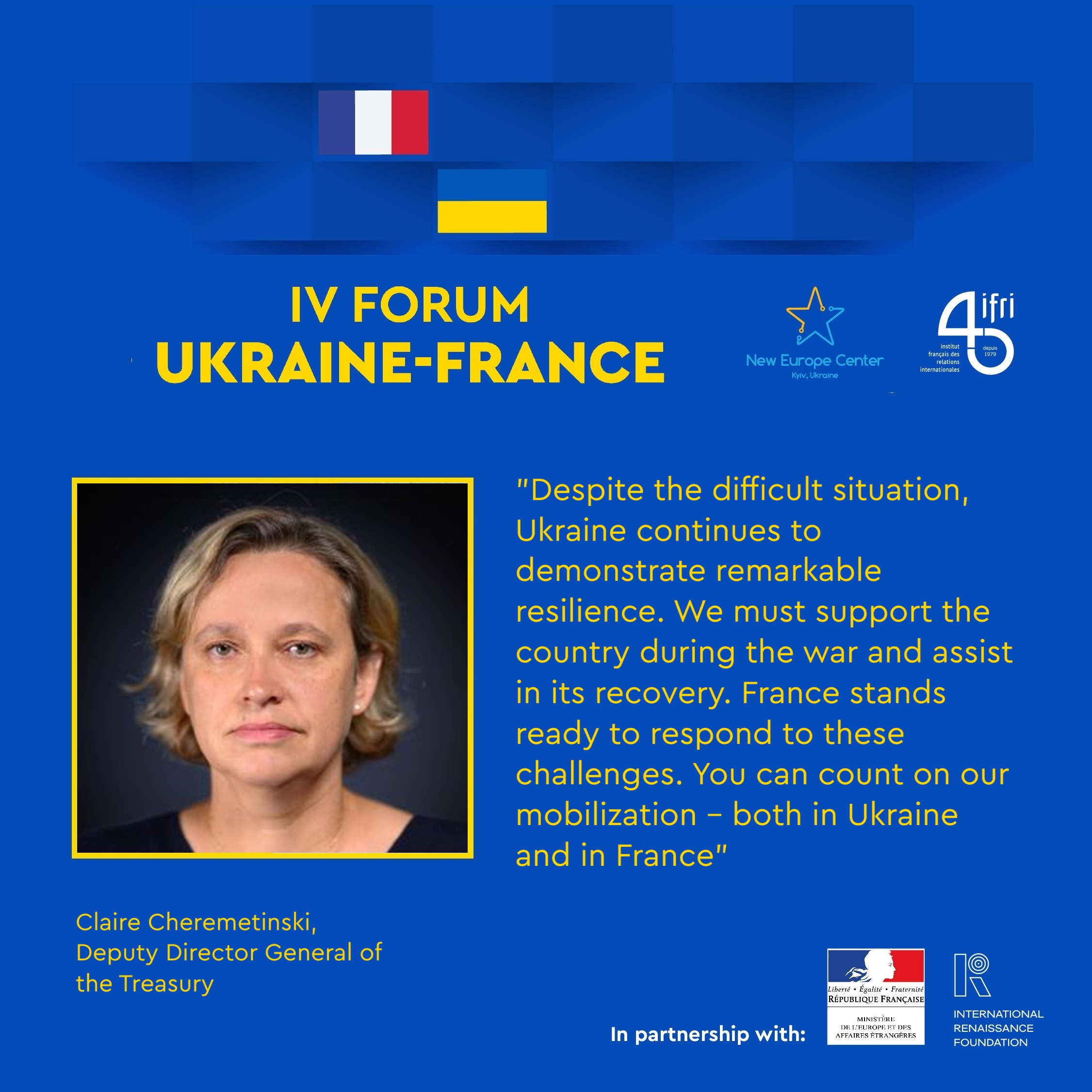
Claire Cheremetinski, Deputy Director General of the Treasury, France:
- Ukraine’s reconstruction is a strategic challenge for Europe. Even after the ceasefire, the country’s financial needs will continue to grow. Kyiv already faces major challenges, including migration, labor shortages, and massive infrastructure losses, particularly in the energy sector.
- Reconstruction is impossible without private sector involvement. France, together with Germany, Poland, and Italy, is developing a joint initiative EU Flagmanship Fund to mobilize up to €500 million in private capital in 2026.
- French companies are already demonstrating confidence in Ukraine’s market – saving 30,000 jobs in 180 French companies during the war..
- Paris aims to deepen cooperation with Ukraine in strategic sectors such as nuclear energy, finance, and the defense industry.
- The EU and France continue to support Ukraine’s reforms in the areas of anti-corruption, rule of law, and market economy development. These efforts not only advance Ukraine’s EU accession prospects but also strengthen investor confidence.
- France is committed to standing by Ukraine for the long term. Its support goes beyond short-term programs. Paris is mobilizing resources to help Ukraine endure, recover, and return to economic growth.
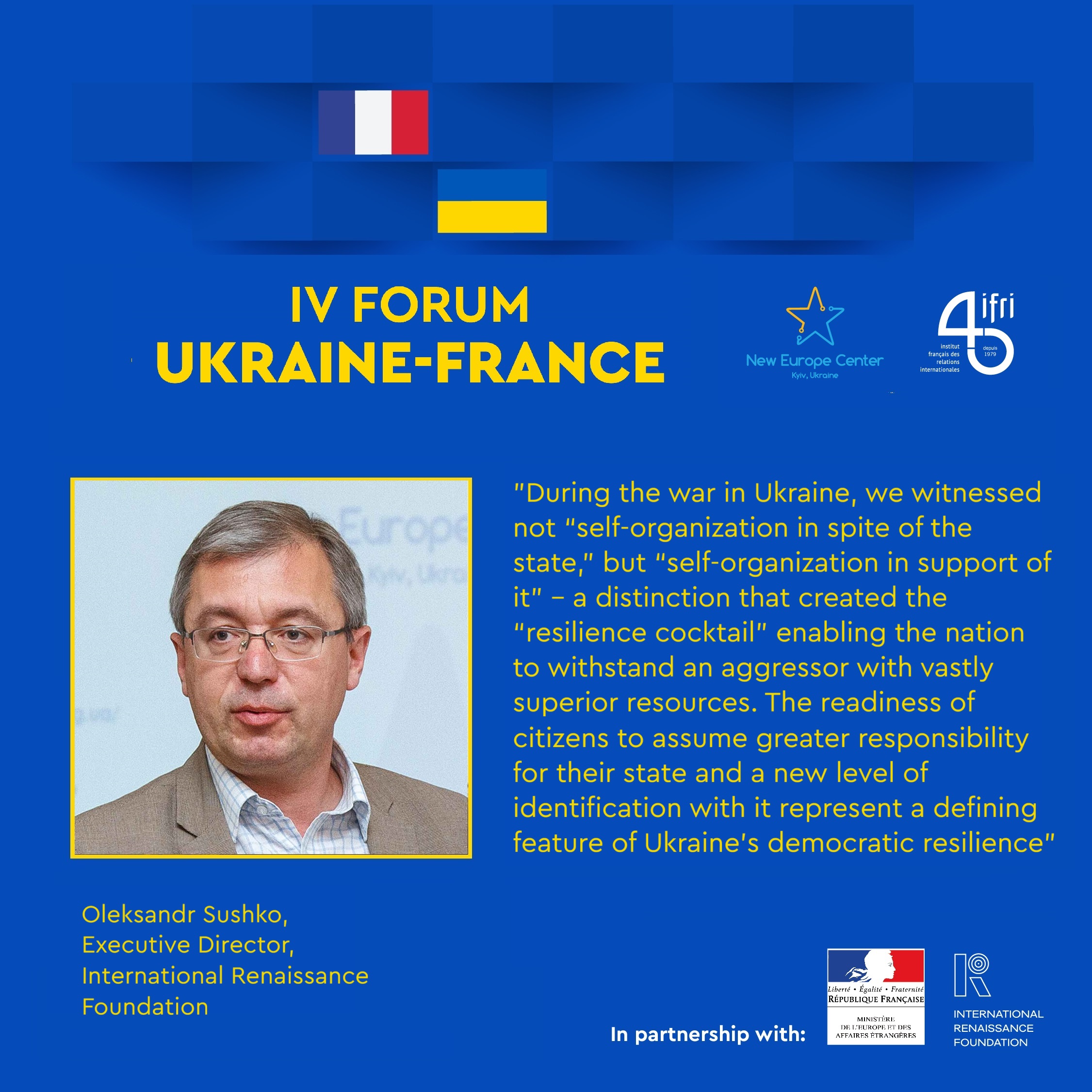
Oleksandr Sushko, Executive Director, International Renaissance Foundation, Ukraine:
- Ukraine’s resilience in war stems from two complementary factors: the state’s ability to act effectively at critical moments and civil society’s capacity for self-organization.
- The uniqueness of Ukraine’s resilience lies in citizens assuming responsibility where the state could not respond swiftly — creating a distinctive model of mutual reinforcement between government and society.
- Civil self-organization during the war did not occur in opposition to the state but in its support — a key factor behind the country’s defensive effectiveness.
The other key messages of Oleksandr Sushko can be found here.
Lesia Orobets, Head of the “Air Defence Shield for Ukraine” initiative, former Member of Parliament of Ukraine, kindly moderated the panel discussion.
Watch the recording in Ukrainian: https://cutt.ly/JrMLTgUJ
The Forum is organized by the New Europe Center in partnership with Ifri with the support of the French Ministry for Europe and Foreign Affairs. For this event, the New Europe Center is supported by the International Renaissance Foundation.



